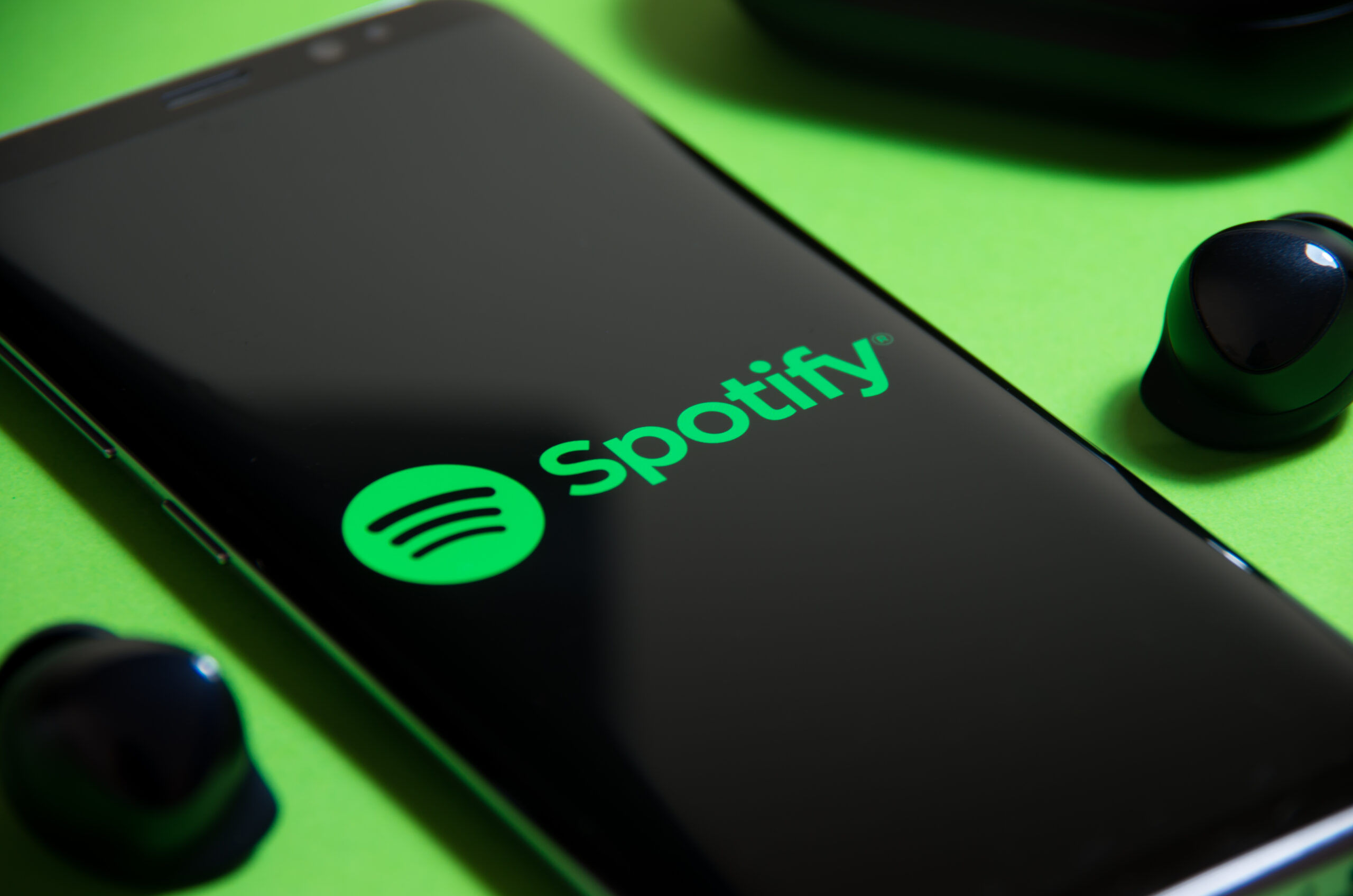Spotify has begun its foray into the crypto market, offering users the opportunity to acquire exclusive playlists that can only be unlocked through the ownership of a “non-fungible token” (or NFT) – a unique digital asset that can be sold or traded, but never copied. The move is line with Spotify’s mantra of always being at the forefront of technology and music, and has been received well in NFT communities like Kingship, Fluf, Moonbird and Overlord, with many believing that the move could fix the utility issue that web3 users believe has been plaguing the industry. That said, the latest development has barely been noted by Spotify’s regular users, who it would seem have a lot to learn about the emerging cryptocurrency.
In fact, BanklessTimes.com can reveal that 63% of Spotify users in the US openly admit that they don’t understand anything at all about cryptocurrencies, and this number extends to 68% amongst Spotify account holders in the United Kingdom. These figures are taken from a YouGov study targeting Spotify users with Android devices in the UK and US – the countries selected to benefit from Spotify’s initial NFT pilot alongside Germany and Australia. Currently, users are being allowed to preview certain artist’s NFTs when accessing their profile page, and consumers who wish to learn more about or buy an NFT will be linked to an external NFT page. In the future, however, the process will be streamlined and users will be able to link their crypto-wallet to their Spotify account.
More Than Half of Spotify’s US and UK Users Don’t Trust Cryptocurrency
With more than half of Spotify users in the United States (53%) fearing that cryptocurrencies are not to be trusted, and even greater mistrust in the United Kingdom (59%), is Spotify wise to be implementing such a move? On one view, it might be said that the general public are largely uneducated in the field of NFTs, and that attitudes will begin to change as time moves on. There might be something to this, as 42% of the UK public freely admit that they have never even heard of an NFT, and while 34% of the public in the US may have heard of the term, only 12% are capable of explaining what it means. However, it would seem that education does not necessarily correlate with trust, because of those who do know what an NFT is, a worrying 27% said that they would feel much less favourable towards a company that started offering the crypto-assets.
Flashy Brands Have Resulted in Disdain Towards NFTs
There would seem therefore to be some level disdain associated with NFTs, and perhaps some of this stems from an oversaturated market, with many brands including Burberry, Playboy and Louis Vuitton keen to hop on the bandwagon but ultimately getting it wrong by launching low-value, high-volume tokens associated with nothing more than an image.
Playboy recently reported a $4.9M impairment loss on its NFT project, which started life during the NFT boom of 2021. In part this was driven by volatility in the value of the underlying cryptocurrency, Ethereum, with its market price swinging from a low of $964 to a high of $3,813 during 2022, but a drop in interest will have contributed to the fall. While Google trends showed rising interest for NFTs during 2021, worldwide searches for this term peaked in January 2022 and have been on a steady decline ever since, dropping by 92% to date. The level of interest hasn’t been this low since the pre-hype levels of February 2021.
NFTs are Largely Fuelled by Hype
One of the difficulties with NFTs is that the market is highly speculative and is fuelled by hype rather than intrinsic value. A prime example is the Bored Ape Yacht Club project, which offered members access to a secret club based on the purchase of a cartoon, and which surged in popularity when celebrities like Eminem and Justin Bieber started buying Bored Apes of their own. But while Eminem may have paid $460,000 for his computer-generated picture of an ape, the floor price today is just $116,000, leaving many frustrated that their investment simply isn’t holding up.
Hype isn’t necessarily a bad thing in the music industry though, and the hype surrounding NFTs has helped to launch the careers of some previously unknown artists. In 2013, MoRuf, a Nigerian-American recording artist received underground success with his project Shades of Moo, but it was only when he began using the Web3 space in 2022 to launch his single Canal Street that he really took off, scoring a collaboration with Snoop Dogg. Similar good fortunes have been visited on, Sammy Arriaga, a Cuban-American country artist who thought that his music career was over after he was knocked out in season 10 of American Idol and then dropped by Sony records. Less than two months after discovering Web3, his METAGIRL digital hearts brought in more than $250,000 worth of music NFTs. Sammy even told Business Insider that Web3 is the best thing to happen to his music career thus far.
Is Spotify Too Late to the Party?
The CEO of Bankless Times feels that while Spotify is late to the party there is still the potential for NFTs to find their niche.
The CEO of BanklessTimes.comWhile it’s certainly true that NFTs have been declining year on year, I think there’s still the potential for NFTs to grow and develop in other areas like music and sport. Mark Zuckerberg recently confirmed that Instagram will start to incorporate NFTs and while in the past they were often released as collectable images with little thought behind their application, NFTs could allow musicians to upload digital albums or use NFTs to unlock perks at gigs, from backstage passes to merchandise offers.
Despite some of the hesitation mentioned earlier in this article, a significant minority is already on-board with cryptocurrency, with 31% of US respondents and 27% of Spotify Android users in the UK believing that it is the future of online transactions. It seems that music could very well be a breakout application, and while songwriters earn 50% of radio revenues, they only earn 15% from streaming services such as Spotify, so there is certainly a need for artists to think more about increasing their revenues. Prior to the pandemic, touring was seen as one of the main ways that artists could turn a profit, but NFTs could allow musicians to supplement their incomes whilst bypassing the swathe of label, distributor and publisher rights and selling direct to their fan base.
Musicians are Beginning to See the Perks of NFTS
It seems that artists are beginning to cotton-on to the perks of NFTs, with the Kings of Leon recently selling a batch for $1.4m and Grimes selling almost $6m of NFTs in 20 minutes. However with just one in six Americans (16%) expressing an interest in owning an NFT (a number that is down 8 percentage points from last year) it seems that the public may take some convincing of their benefits. Even in the group of consumers that classed themselves as familiar with NFTs, more than half (55%) believe that will be less popular 5 years from now than they are today, and impressions like that do not bode well for investments.
It seems the real issue with NFTs centres around price, and long gone are the days when anyone – let alone a regular member of the public – would be prepared to pay almost $500,000 for a picture of a cartoon ape. Consumers are now less willing to pay for NFTs, with over two in three (69%) saying that they would not be prepared to pay more than $5 for one, which is up from 60% in Q2 2022. In Q1 2023, only 27% of consumers would be willing to pay more than $5 for an NFT, which is down a whopping 10% from 37% from Q2 in 2022.
With Spotify currently paying artists three times less than they receive in radio revenues, it is not difficult to foresee the streaming giant seeking to extract significant profit from NFTs which, ironically, have in the past worked so well at putting profits back into artists’ pockets and allowing them to interact directly with their fan base. With the corporate middle-man being added back into the equation, Spotify users would be right to be wary of the future of NFTs.













